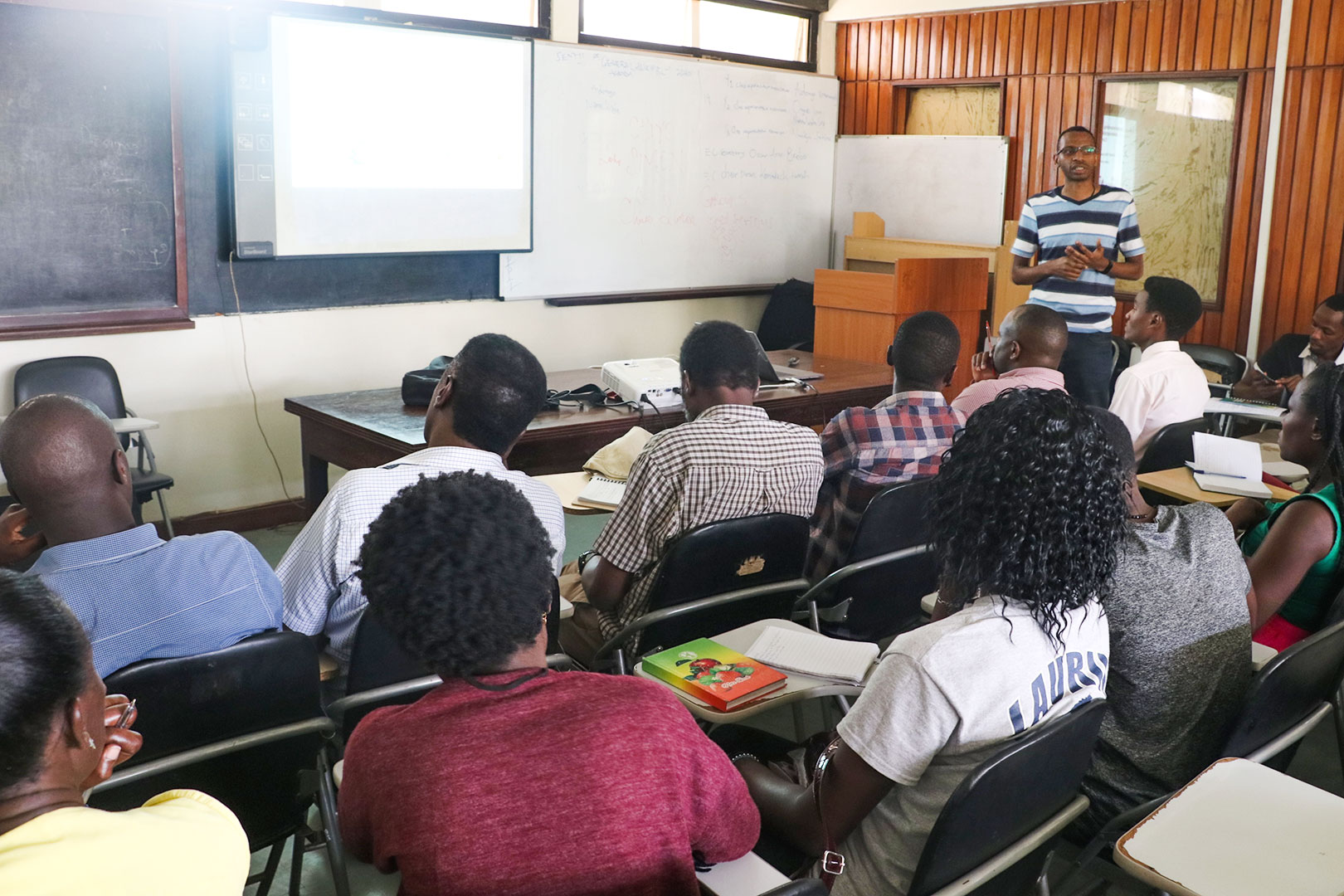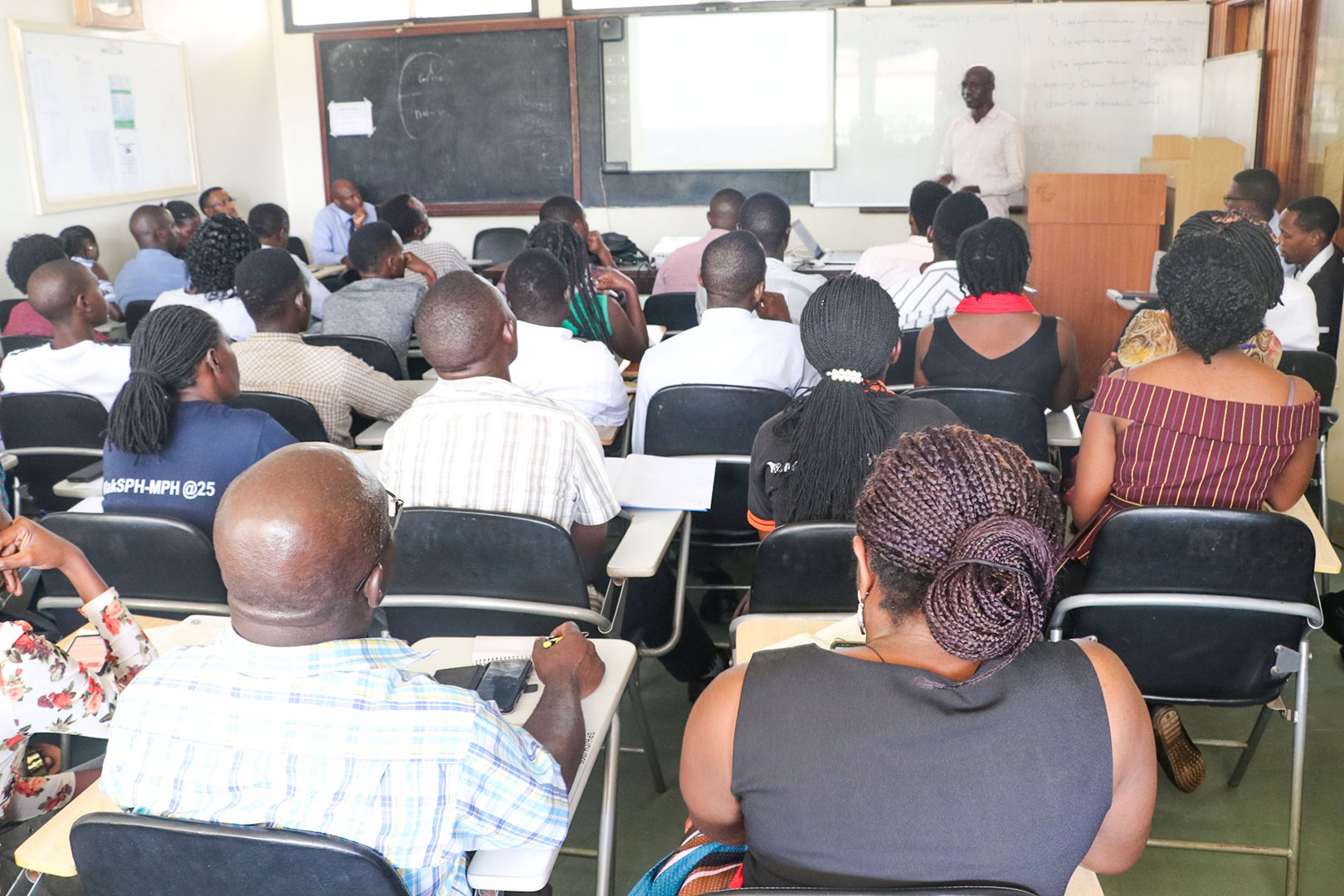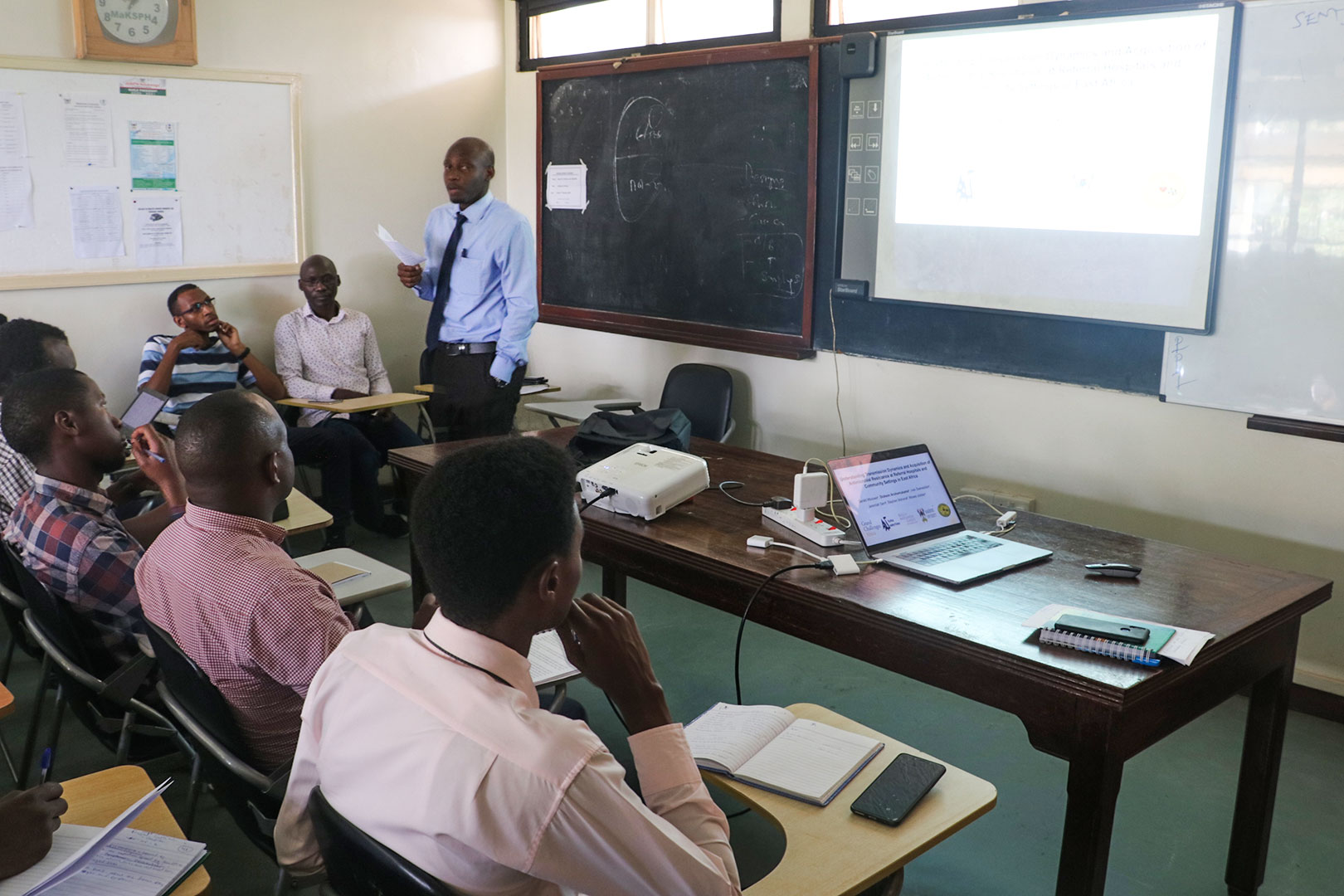
Dickson Aruhomukama, a PhD Fellow in the Department of Immunology and Molecular Biology, Makerere University College Of Health Sciences making a presentation at the Lunchtime Seminar
Written By Joseph Odoi
On 12th February, 2020, Makerere University School of Public Health held a lunchtime seminar entitled ‘’Understanding Transmission Dynamics and Acquisition of Antimicrobial Resistance at Referral Hospitals and Community Settings in East Africa’’. The purpose of the seminar was to share key insights surrounding behaviours and practices that influence transmission dynamics and acquisition of antimicrobial resistance (AMR).
Antimicrobial resistance (AMR), also referred to as antibiotic resistance is said to occur when bacteria can resist the effects of antibiotics that once could successfully be treated according to World Health Organization (WHO). Resistant bacteria are more difficult to treat and require alternative medications or higher doses of antibiotics.
While making a presentation, Dickson Aruhomukama, a PhD Fellow in the Department of Immunology and Molecular Biology, Makerere University College Of Health Sciences advised students against self-medication with antibiotics adding that self-medication is one of the practices that exacerbates AMR.
‘’Majority of the participants have never heard of AMR, many acknowledged that despite having consulted a doctor(s) about which antibiotics to use before, they continue to self-medicate with antibiotics not basing on prescription but mostly on previous experience as well as opinions of family and friends. Drivers of self-medication were cost-saving and convenient” explained Dickson.
Citing the WHO AMR Report, 2014, Dickson highlighted AMR as a cross-cutting and growing public health threat of broad concern, with approximately 10 million people (greater than 4 million from Africa) expected to die from antimicrobial resistant infections by 2050 if not addressed.
As a result, Dickson shared key research insights such as how he is applying a next-generation sequencing approach (a metagenomics approach) to understand clinical antibiotic resistance using waste-water sediments sourced from man-holes draining critical care units of Mulago Hospital, Uganda. In doing so, he noted that his work will be helpful in outlining a plan for hospital and community detection, prediction, monitoring and surveillance of antibiotic resistance.
In his presentation, Gerald Mboowa a Bioinformatics Scientist passionate about AMR shared about the role of high-throughput sequencing tools (HTS) affirming that it has revolutionized treatment, prevention and management of infectious diseases through disease population surveillance and disease outbreak investigation such as in the cases of Ebola, Zika, Chikungunya, Marburg, Methicillin-resistant Staphylococcus aureus, drug resistant TB, and severe acute respiratory syndrome (SARS)–associated corona virus.

He also noted how whole-genome sequencing would be utilized in understanding transmission dynamics of AMR. The seminar was chaired by Dr. David Musoke of the Department of Disease Control and Environmental Health
About the presenters.
Dickson Aruhomukama is a PhD Fellow in the Department of Immunology and Molecular Biology, Makerere University, whose PhD work focuses on applying next-generation sequencing (i.e. a metagenomics approach) in understanding clinical antibiotic resistance using waste-water sediment sourced from man-holes draining critical care units of Mulago Hospital, Uganda. This work is driven by his belief that hospital environments evolve over time due to antibiotic selection pressure continually shaping clinically relevant resistance. This work will particularly be helpful in outlining a plan for hospital and community detection, prediction, monitoring and surveillance of antibiotic resistance which is difficult to achieve in other ways. He is also a co-principal investigator on the project: Understanding Transmission Dynamics and Acquisition of Antimicrobial Resistance at Referral Hospitals and Community Settings in East Africa.
Gerald Mboowa, PhD is a Bioinformatics Scientist passionate about AMR , working with the Infectious Diseases Institute, Makerere University. Gerald is the principal investigator of the project: Understanding Transmission Dynamics and Acquisition of Antimicrobial Resistance at Referral Hospitals and Community Settings in East Africa. This work is funded by the Grand Challenges Africa and the Bill and Melinda Gates foundation under the African Academy of Sciences (AAS).
Their research work is supported through the Grand Challenges Africa programme. Grand Challenges Africa is a programme of the African Academy of Sciences (AAS) implemented through the Alliance for Accelerating Excellence in Science in Africa (AESA) platform, an initiative of the AAS and the African Union Development Agency (AUDA-NEPAD). GC Africa is supported by the Bill & Melinda Gates Foundation (BMGF) and The African Academy of Sciences and partners.


